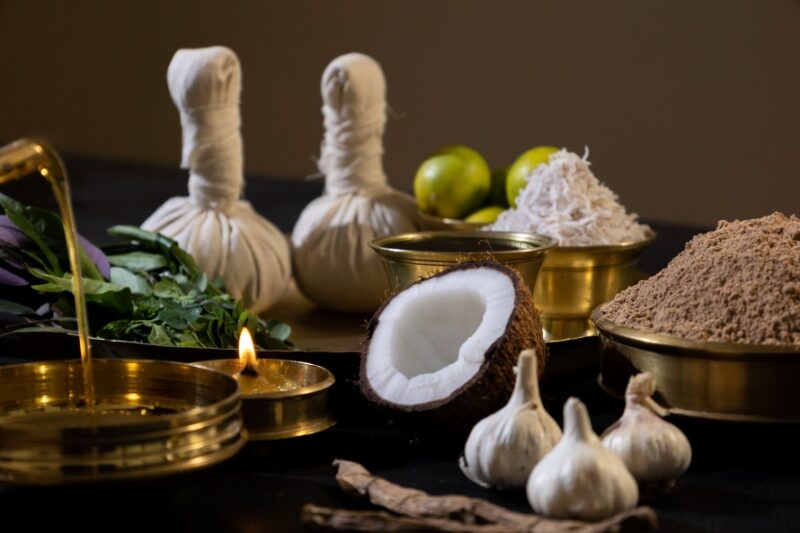Ayurveda, Naturopathy, and Homeopathy: Traditional Approaches In Modern Wellness Clinics

In today’s evolving healthcare landscape, many individuals are seeking integrative solutions that go beyond conventional medicine. Wellness clinics across the world are increasingly incorporating traditional healing systems such as Ayurveda, Naturopathy, and Homeopathy into their offerings, creating a space where preventive, restorative, and holistic care can coexist. This reflects a growing recognition of the need to treat the whole person—mind, body, and spirit. Clinics like Lifewell MD in Palm Beach illustrate how traditional approaches can sit alongside modern healthcare practices without being positioned in opposition to them.
Ayurveda: The Science of Balance
Ayurveda, one of the world’s oldest systems of medicine, has its roots in India and has been practiced for over 3,000 years. The central philosophy of Ayurveda emphasizes balance between the body, mind, spirit, and environment. It recognizes three fundamental energies, or doshas: Vata, Pitta, and Kapha. An imbalance in these doshas is believed to contribute to illness.
Modern wellness clinics apply Ayurvedic principles through personalized diet recommendations, herbal formulations, yoga, and detoxification therapies such as Panchakarma. Importantly, Ayurveda is not limited to treating disease but focuses on strengthening immunity, preventing illness, and improving vitality. By prioritizing prevention, Ayurveda aligns with today’s increasing emphasis on proactive healthcare.
Naturopathy: Healing Through Nature
Naturopathy is another holistic approach that has gained renewed attention in wellness clinics. Based on the principle of “vis medicatrix naturae,” or the healing power of nature, naturopathy emphasizes the body’s inherent ability to restore health when given the right environment.
Core practices include nutrition therapy, hydrotherapy, physical exercises, lifestyle counseling, and natural remedies. A naturopathic perspective encourages patients to minimize dependency on invasive treatments when possible and instead use nature-driven therapies that strengthen overall well-being.
In modern clinical settings, naturopathy is often integrated with diagnostic tools and evidence-based practices. For example, dietary guidance may be paired with lab assessments to create a more comprehensive picture of health. The focus is less on treating isolated symptoms and more on uncovering the root causes of imbalance—whether stress, poor diet, or lack of physical activity.

Homeopathy: Individualized Gentle Care
Homeopathy, developed in the late 18th century by Samuel Hahnemann, is based on the principle of “like cures like.” It uses highly diluted natural substances to stimulate the body’s self-healing mechanisms. Homeopathy emphasizes individualization, meaning no two patients with the same condition necessarily receive the same remedy.
In wellness clinics, homeopathy is often valued for its gentle and non-invasive nature. Practitioners may use it for chronic ailments, allergies, skin conditions, and emotional well-being. While debates continue regarding its mechanisms and efficacy, homeopathy has a long history of use and remains a part of holistic care models worldwide.
Integrating Traditional Approaches into Modern Wellness
Ayurveda, Naturopathy, and Homeopathy share a common thread: they all emphasize prevention, personalization, and balance rather than a one-size-fits-all cure. In today’s wellness clinics, these traditional systems are not intended to replace modern medicine but to complement it. Many clinics adopt an integrative model where patients have access to both conventional diagnostics and holistic therapies, creating a well-rounded approach to health.
The growing popularity of these practices highlights a cultural shift in how people view health. Rather than focusing solely on treating illness, individuals are increasingly valuing longevity, resilience, and overall wellness. This makes traditional healing systems relevant in a modern setting where lifestyle-related conditions such as stress, obesity, and chronic fatigue are on the rise.
A Broader View of Wellness
Wellness clinics that include Ayurveda, Naturopathy, and Homeopathy are part of a larger movement toward patient-centered care. By focusing on prevention, personalization, and natural healing, these systems contribute to a more holistic view of health. They acknowledge that well-being is not just the absence of disease but the presence of vitality, balance, and harmony.
As more communities embrace integrative healthcare, clinics across the globe—including those like Lifewell MD in Palm Beach—serve as examples of how traditional and modern practices can coexist in the pursuit of comprehensive wellness.






